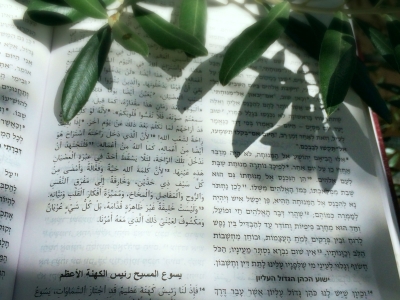The fruit in our land is delicious. A few days ago, while driving to and from Hebron where our common ancestors are buried, we saw tomatoes as huge as grapefruit! As someone said in a movie about the Holy Land, "So huge, they are, that five or six already make a dozen."
Sweet and succulent fruit and vegetables have long characterized this region.
But how is fruit grown, and what are the conditions necessary to produce such tasty fruit?
One thing the conscientious farmer must do is to prune his plants. Those branches that are long and straggly, simply absorbing the nutrients and not producing fruit must, quite simply, be cut off. To be healthy a plant must be fertilized and have the conditions around it that will promote its growth. It needs good soil, enough but not too much moisture, enough but not too much sunshine, and enough but not too much breeze to strengthen the plant and disperse the seeds without blowing the plant away!
As it is in the natural world, so also in the spiritual world the roots must go deep into the solid soil of the Word and Heart of God. When the right seeds are planted and the conditions are right, growth will surely come. The life of faith is profound in its simplicity. As we grow into the image of our Savior, we begin to look more and more like him. We take on his attributes and characteristics. As he is truth, so will we be. As he is ultimate humility clothed in divinity, so too is our nature. As he is the personification of love, so must we be!
Any tree that does not bear fruit is pruned! This pruning is vital for the plant to be sweet and tasty. We do not have to strive or work in any legalistic sense to grow into the likeness of God. Instead, with the creation of the conditions which nurture this growth, the fruit grows abundantly. We must have the proper soil, which is to be rooted and grounded in a healthy body of believers. The proper amount of sun and rain means that we have blessings that are obvious, and some pain, that may not be so obvious. We have the right amount of wind, which can seem like adversity and which may fling us to places we had never dreamed of and cause us to put down roots even deeper in the good, firm soil. In this way, the seed of faith grows into the likeness of the parent seed, bearing the image and likeness of our God.

